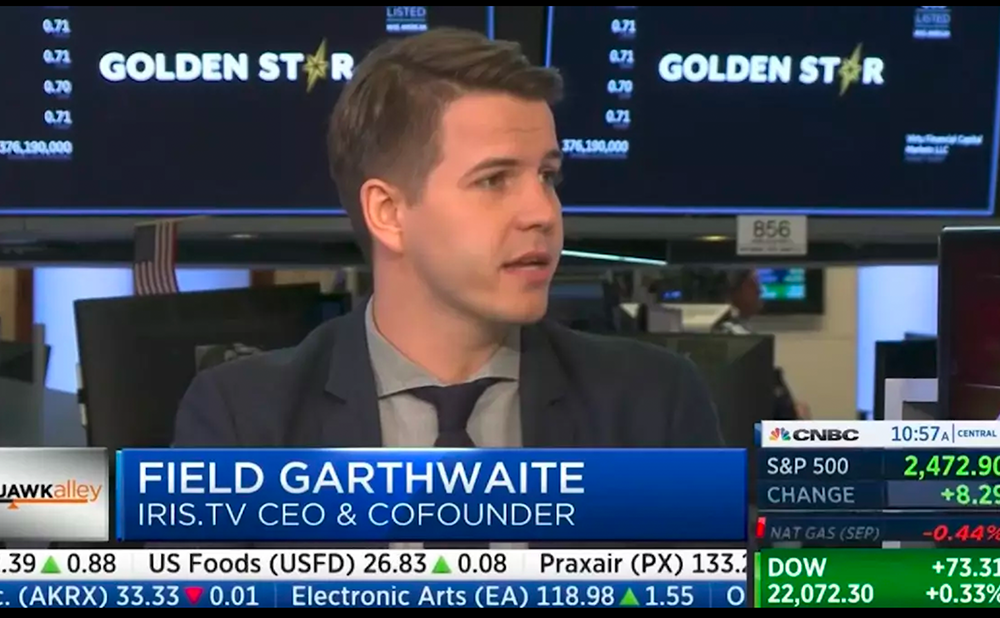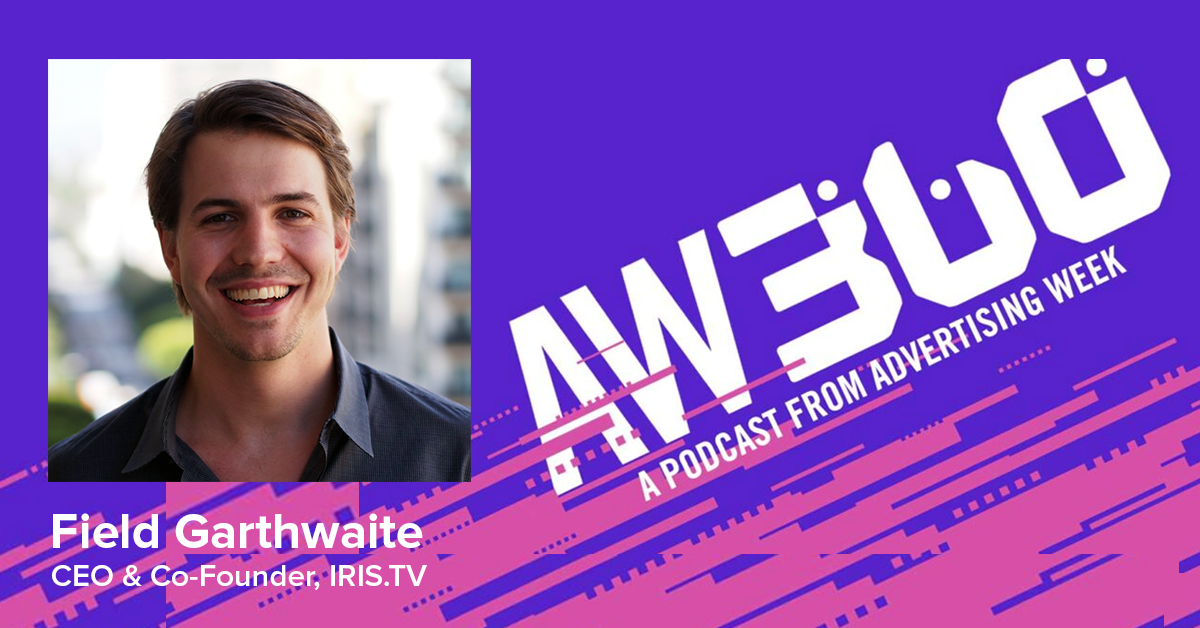CNBC Squawk Alley: IRIS.TV CEO, We're taking audiences away from Facebook and Google...
Posted by Rohan Castelino | Aug 22, 2017 | Video |
IRIS.TV CEO Field Garthwaite joined the team at CNBC’s Squawk Alley to discuss how artificial intelligence is helping media companies and content creators gain an edge over the competition.
Carl Quintanilla: “So AI - would essentially extend watch periods? Is there a way to describe it this to the layperson?”
Field Garthwaite: “Yeah so we are in the business of taking audiences away from Facebook and Google and bringing them back to broadcasters and media companies and we do that by licensing our AI Software to companies like Time Inc., CBS, FOX. We help them dramatically increase video views from existing audiences. So if you are watching a clip on say Sports Illustrated about Odell Beckham Jr, you might be watching for a fantasy football reason or you might be watching because you love the Giants. We’ll help you dive deep in that archive and continue watching just like you’d experience on Netflix or YouTube.”
Wilfred Frost: “But getting people back onto the broadcast platform, how do you make them switch? How would the consumer decide to make the switch based off your data?”
F.G: “Well millions of viewers come to your site on CNBC everyday right? So if you have 20 videos about what’s happening right now in Charlottesville, and one of those videos performed best, and it’s from follow-on video views [in a playlist] as well as what’s driving the most ad completions and viewing time. So our system will learn and when one of your viewers shows up to CNBC and watches a clip, we’ll recommend that breaking news and recommend the content that's performing best.”
Sara Eisen: “So it’s all keying into behavioral patterns?”
F.G: “Correct. We’ll index the content itself and intelligence on the videos and then we’ll anonymously look at information such as what device you’re on, where you are, things that Google and Facebook do so well, to create a personalized playlist for every user.”
W.F: “What can your software achieve? We are ultimately in a sort of zero-sum game at the moment where you can perhaps drive [audiences] as you say from Facebook back to the broadcasters or can you actually make viewers want to just watch more videos wherever they're watching it?”
F.G: “It’s a really good point. So we basically are seeing personalization disrupt all of media right now. Facebook and YouTube have kept their tech as like the best kept secret in the industry. So what we’ve done is build technology and license it to these companies like CNBC, FOX, and CBS so that on your owned & operated platforms, you can build audience because media ultimately is a pretty simple thing. You need to have great content, own a distribution platform and monetize it. If you can manage that windowing well and have great programming, you can build large audiences.”
C.Q: “Is this sophisticated coding on the spectrum of all coding?”
F.G: “Correct. Yeah so part of our business is really on the deep learning side. And what we like to think of in terms of A.I. is that it’s augment intelligence. So we have systems that are constantly learning what videos are performing best and raising them up. But we also provide a programming tools engine to our customers so it’s easy for them to manage and actually have control over our A.I.”
S.E: “So what’s the biggest challenge that some of these traditional media companies have in competing with Facebook and Google for video?”
F.G: “So there’s been this trend that we’ve heard which is go where the audience is, which is effectively a fallacy. These guys have basically gotten tons of free content onto their platforms, they’ve been able to learn from their audiences and to drive intelligence to then create user experiences. Media companies can do this themselves and when they do they’re going to turn into huge profit centers.”



.png)
.gif)





